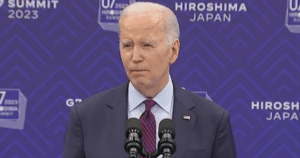Supreme Court Will Hear TikTok Ban Arguments on January 10
The next session of the Supreme Court is set to begin after the New Year, and it is going to start with a bang.
The case will be heard on January 10, and the fate of TikTok will be decided.
Currently, unless the app is sold to a US company, the government is prepared to ban the app due to its Chinese links.
Banning TikTok
If all things stay the same, come January 19, if ByteDance does not sell the app to a U.S.-based buyer, it will be illegal to distribute the app in the Apple App Store as well as the Google Play Store.
Additionally, browsers will be required to block the app from being accessed within the United States.
This will hit U.S. content creators rather heavily, as they rely on TikTok for income.
The irony in all of this is that Donald Trump is the one who initially started the talk of banning TikTok, calling it a national security risk, but now he is trying to be the savior of the app.
Trump stated, "I think we're going to have to start thinking because, you know, we did go on TikTok, and we had a great response with billions of views, billions and billions of views.
“They brought me a chart, and it was a record, and it was so beautiful to see, and as I looked at it, I said, 'Maybe we gotta keep this sucker around for a little while.’”
Even more amusing is that when Trump first brought up the idea of banning TikTok, his supporters railed against the app and backed his play due its direct ties to the CCP.
Now that Trump wants to keep the app around, his diehard supporters have flipped, and many of them are making the case to keep TikTok available on their other social media outlets.
As far as the Supreme Court goes, your guess is as good as mine in this case.
This is a fairly complex issue, and you just don’t know how the court will swing, especially when Congress and the American people are just as divided on the issue.
The kicker in all of this is that even if TikTok is sold to a U.S. buyer, it would only include the United States portion of the app, and that does not include the algorithm.
China sees that as intellectual property, so if the Supreme Court rules against the app and it does get sold, there are likely to be even more legal battles regarding the algorithm.



